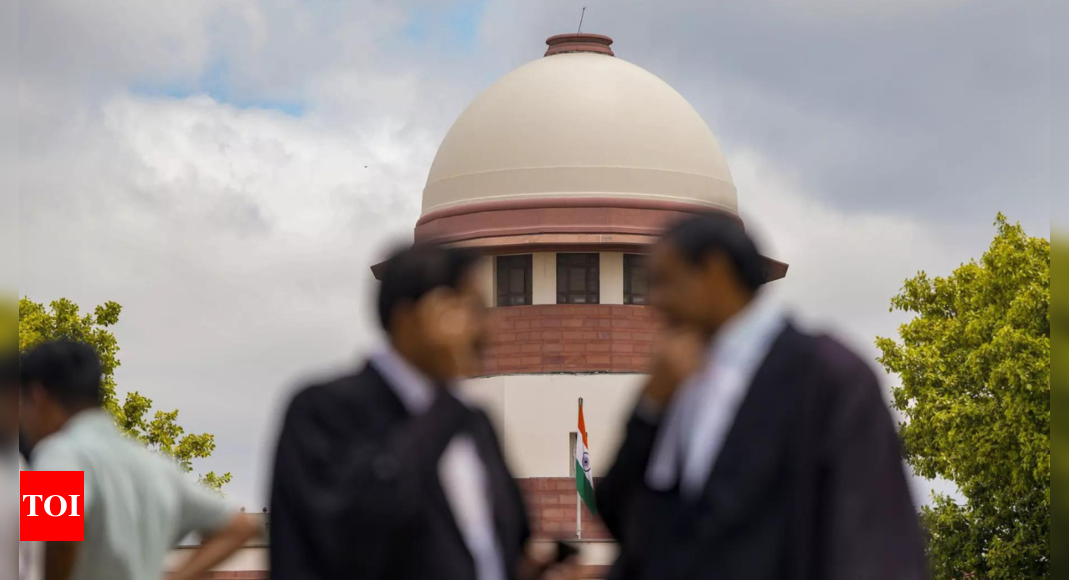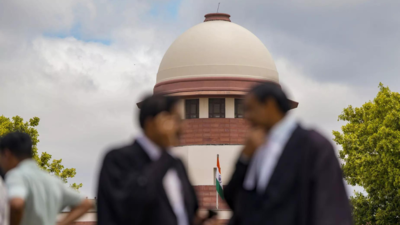NEW DELHI: If a convicted person is barred from government employment, what is the rationale behind provisions in the Representation of the People Act that allow a convicted criminal to contest elections and become a lawmaker six years after he has served the sentence, Supreme Court asked on Monday.
After two landmark judgments on electoral reforms – mandatory disclosure of assets and criminal antecedents by candidates, and prescribing automatic disqualification on conviction and sentence beyond two years – a bench of Justices Dipankar Datta and Manmohan decided to foray into a possible third by agreeing to test the constitutional validity of parts of Sections 8 & 9 of RP Act – should there be a life ban on the convicted on contesting election?
The SC asked government and EC to file replies to the plea by advocate-petitioner Ashwini Kumar Upadhyay in three weeks.
Next SC hearing on convicts fighting polls on March 4
Supreme Court said if Union government and EC did not file their responses within the stipulated period, it would still proceed with the matter and posted further hearing on March 4.
Under the RP Act, a person is eligible to contest elections six years after he has served out the sentence awarded to him upon conviction in a criminal case or one concerning moral turpitude or corruption. Appearing for the petitioner, senior advocate Vikas Singh gave the example of a convicted criminal not being eligible for a peon’s job in government but being eligible, six years after completion of prison term, to be a lawmaker. Drawing the court’s attention to rising crimes by juveniles, Singh said even if held guilty for murder, a juvenile aged 17 would not get imprisonment of more than three years. This means, by the age of 26, he would be eligible to contest elections and if backed by a political party, he would stand a fair chance of becoming a lawmaker.
Though this example caught the bench’s imagination, Justice Manmohan appeared more aware of ground realities and machinations of convicted politicians in getting around even the six-year ban, making their wives either the CM or lawmaker. “We must not do something that would provide another ruse for politicians to retain control through remote control,” he said.
Amicus curiae and senior advocate Vijay Hansaria supported the petition and told the court that the time had come to test the constitutional validity of certain parts of Sections 8 and 9 of RP Act that allowed a convicted criminal/politician to enter/re-enter the political arena.
Tamil Nadu’s additional advocate general Amit Anand Tiwari said the main stakeholders, national and state parties, should be given notice for their responses. The bench said these days SC proceedings were widely reported and it would hear arguments from all stakeholders, whosoever decided to address the court on this issue.
In 2003, in People’s Union for Civil Liberties case, SC had for the first time directed candidates contesting an election to declare their assets and criminal antecedents. This order was reinforced by another order in 2018, mandating candidates to file affidavits giving details of their criminal antecedents and details of their own and spouses’ assets.
Should convicts be barred for life from polls? SC seeks responses from Centre, EC | India News
by Justin
Published On: February 11, 2025 5:21 am








